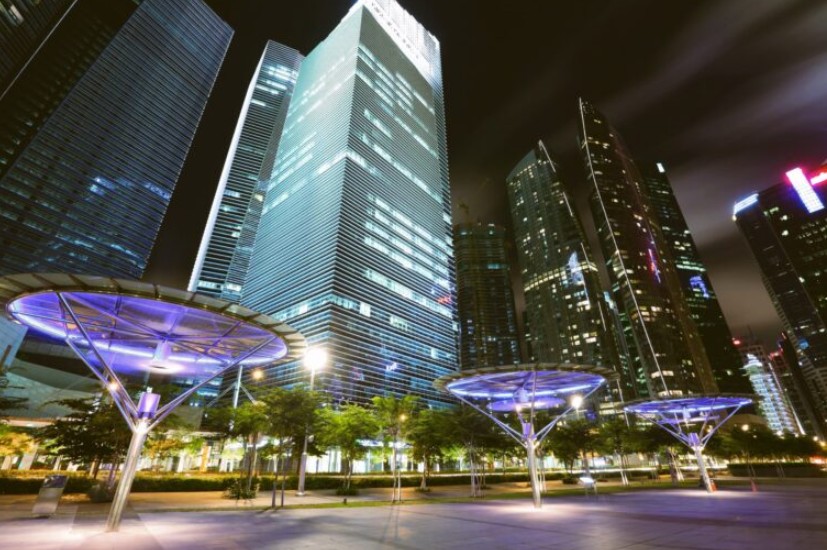
Singapore’s Premier Facility Management Companies: Your Complete 2025 Guide
The search for top facility management companies in singapore has never been more critical, as organisations across the Lion City increasingly recognise the strategic value of outsourcing their non-core operations to specialised providers. Like the intricate cellular mechanisms that maintain life’s delicate balance, these facility management enterprises serve as the invisible orchestrators of Singapore’s built environment, ensuring that commercial spaces, industrial complexes, and residential developments function seamlessly while their occupants pursue their primary objectives.
The Evolving Landscape of Singapore’s Facilities Management Market
Singapore’s facility management sector stands as a testament to the nation’s commitment to efficiency and innovation. The Singapore Facility Management Market is expected to reach USD 3.65 billion in 2025 and grow at a CAGR of 3.10% to reach USD 4.25 billion by 2030, reflecting a mature yet dynamic industry that continues to evolve with technological advancement and changing client expectations.
This growth trajectory mirrors the fascinating patterns observed in biological systems, where adaptation and specialisation lead to enhanced functionality. The market’s expansion is driven by several compelling factors:
-
Singapore’s rapid urbanisation and infrastructure development
-
Increasing emphasis on sustainability and energy efficiency
-
Growing adoption of smart building technologies
-
Rising demand for integrated service solutions
-
Government initiatives supporting infrastructure modernisation
The Science of Service Integration
Modern top facility management companies in Singapore have evolved far beyond traditional maintenance providers. Organizations are increasingly outsourcing their facility management services to specialized companies that provide bundled services, enabling businesses to concentrate on their core activities while experts handle facility management. This transformation reflects a deeper understanding of organisational efficiency, much like how complex organisms delegate specific functions to specialised organs.
The most successful providers now offer integrated facilities management services that encompass:
-
Hard services including HVAC, electrical, and mechanical systems
-
Soft services such as cleaning, security, and landscaping
-
Technology-enabled solutions incorporating IoT and data analytics
-
Sustainability consulting and energy management
-
Asset lifecycle management and predictive maintenance
Technology as the Neural Network
Perhaps the most fascinating development in Singapore’s facility management landscape is the integration of advanced technologies. Many service providers implementing Internet of Things (IoT), Computerized Maintenance Management Systems (CMMS), and other advanced technologies to standardize and automate facility management tasks. This technological evolution resembles the development of sophisticated neural networks, where information flows seamlessly between connected nodes to optimise overall system performance.
Smart facility management systems now utilise:
-
Artificial intelligence for predictive maintenance scheduling
-
Digital twin technology for virtual building management
-
Real-time monitoring through sensor networks
-
Automated reporting and performance analytics
-
Mobile platforms for enhanced service delivery
Understanding Market Dynamics and Opportunities
The Singapore facility management market demonstrates remarkable maturity in its approach to service delivery. Singapore’s facility management (FM) market is in the advanced stage of the growth lifecycle due to the strong culture of outsourcing and the high acceptance of value-added or innovative offerings. This sophistication creates unique opportunities for both service providers and their clients.
The Outsourcing Advantage
The outsourced facility management segment dominates the Singapore facility management market, holding approximately 62% market share in 2024. This preference for outsourcing reflects a strategic understanding that specialised providers can deliver superior outcomes through economies of scale, technical expertise, and focused resource allocation.
Organisations choosing to outsource their facilities management benefit from:
-
Access to specialised skills and certifications
-
Reduced operational overhead and capital requirements
-
Enhanced compliance with regulatory standards
-
Improved service consistency and quality metrics
-
Greater flexibility in scaling services according to need
Regulatory Framework and Compliance Excellence
Singapore’s facility management ecosystem operates within a robust regulatory framework that ensures safety, sustainability, and operational excellence. The Building and Construction Authority (BCA) guidelines and Workplace Safety and Health Act form the backbone of industry standards, creating a structured environment where quality providers distinguish themselves through demonstrated compliance and certification achievements.
Leading facility management providers maintain multiple accreditations, including ISO certifications for quality management, environmental standards, and occupational health protocols. This regulatory rigour functions like an immune system, protecting the built environment whilst ensuring service providers maintain the highest operational standards.
Navigating Implementation Challenges
Like any complex biological system, facility management implementation faces certain challenges that require careful consideration. The industry grapples with:
-
Skills shortage in technical specialisations
-
Integration complexity across multiple service providers
-
Balancing cost efficiency with service quality expectations
-
Adapting to rapidly evolving technological standards
-
Meeting increasingly stringent sustainability requirements
The Future Ecosystem of Facility Management
As Singapore continues its transformation into a smart city, facility management companies must evolve to meet emerging demands. The integration of sustainability practices, wellness-focused workplace design, and advanced analytics will define the next generation of service delivery.
The most successful providers are those that embrace this evolutionary pressure, developing capabilities that extend beyond traditional maintenance into strategic partnership roles. They become integral to their clients’ operational success, much like essential organs within a living system.
In this dynamic landscape, organisations seeking to optimise their built environments must carefully evaluate potential partners based on their technological capabilities, service integration approach, sustainability credentials, and demonstrated track record. The future belongs to those facility management companies that can seamlessly blend human expertise with technological innovation, creating environments where businesses and communities can thrive through exceptional facility management.
